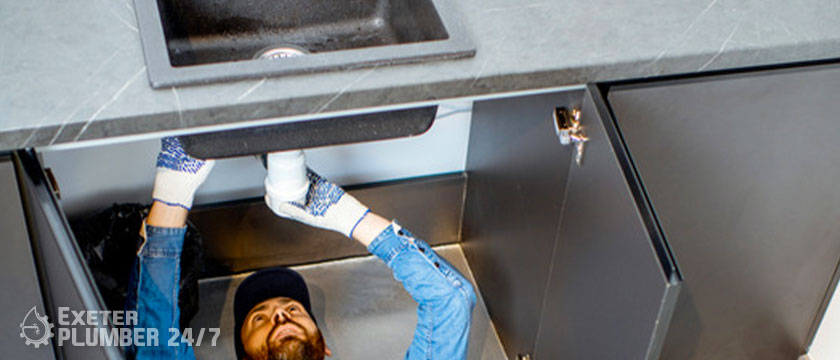-

email us
[email protected]
-

call us now
01392 321064
Professional Exeter Plumber and Plumbing Services

19 Jan. 2022
Signs You Need Water Heater Repair
When you have to take an ice cold shower, a failing water heater doesn’t seem like such a big deal. The water heater operates continuously, 24 hours a day, 365 days a year.
Given the increased amount of stress it is subjected to, it is unsurprising that it will fail at some point. When you have nothing but cold water coming out of your taps and showers, you realize how important this appliance is.
Water heater repair is critical. Here are some warning signs of a malfunctioning water heater.
1. Inconsistent Water Temperatures
Do you ever notice how your water sometimes comes out as hot as you need it and other times it comes out lukewarm or cold? Water temperature fluctuations are an indication that something is wrong with your heater.
Request that a professional come and look at the problem. Try to recall when you first purchased the water heater.
You can have it repaired if it is relatively new, but if it is too old, you are better off replacing it. This saves you time, money, and the stress of having to repair the appliance several times.
What is the source of the water heater’s heat loss? The most common cause of this problem is the accumulation of mineral deposits. Mineral deposits accumulate over time and cover your water heating elements, preventing them from functioning properly. If only the water elements are faulty, you can have them repaired or replaced rather than purchasing a completely new water heating system.
2. Water Discoloration
It goes without saying that the only water coming from your faucet should be colorless. Due to the high pressure, it may appear hazy at times, but it should turn colorless once the pressure is even.
If you notice that the water coming out of your faucets is brownish, rusty, or contains small dark particles, the source is most likely your water heater. These notices are from heating engineer exeter.
Water’s color changes to brownish due to sedimentation. If this is the case, you may be exposed to a serious health risk in your home. Request the services of a qualified water heater professional to clean the hot water tanks, or leave the water running to see if the water color returns to colorless.
If this does not work, it is possible that your tank is rusted.
3. You run out of hot water far too quickly.
The water heater is intended to keep your water hot and ready to use at all times. It is equipped with two heating elements, one at the bottom and one at the top. A water heater contains gallons upon gallons of hot water at any given time.
If you run out of hot water when you need it, one of your water heating elements is broken.
4. Strange Noises from the Tank
As the heating system ages, it begins with a mild buzz and gradually progresses to rumbling sounds. Many worried homeowners believe their water heater is about to burst. This, however, is not the case.
It’s perfectly normal for your water heater to make some noise. However, if the noise becomes loud banging, popping, or cracking, you have reason to be concerned.
To find out what the problem is, contact a repair service and have them inspect your water heater.
In many cases, a water heater becomes noisy due to an excessive buildup of mineral deposits inside the tanks and on the heating elements.
Another possibility is that the water heater has a broken dip tube, allowing cold and hot water to mix.
Too much noise can also weaken the structures of your water heater, causing it to weaken and leak. This means you’ll have to purchase a new water heater.
However, if yours hasn’t started leaking yet, you can have the repairman flush all the water and thoroughly clean the inside of your heater. This is the only way to stop the noises and get it back to work.
- By:Exeter Plumber
- Comments:No Comments
- 1
- 2
